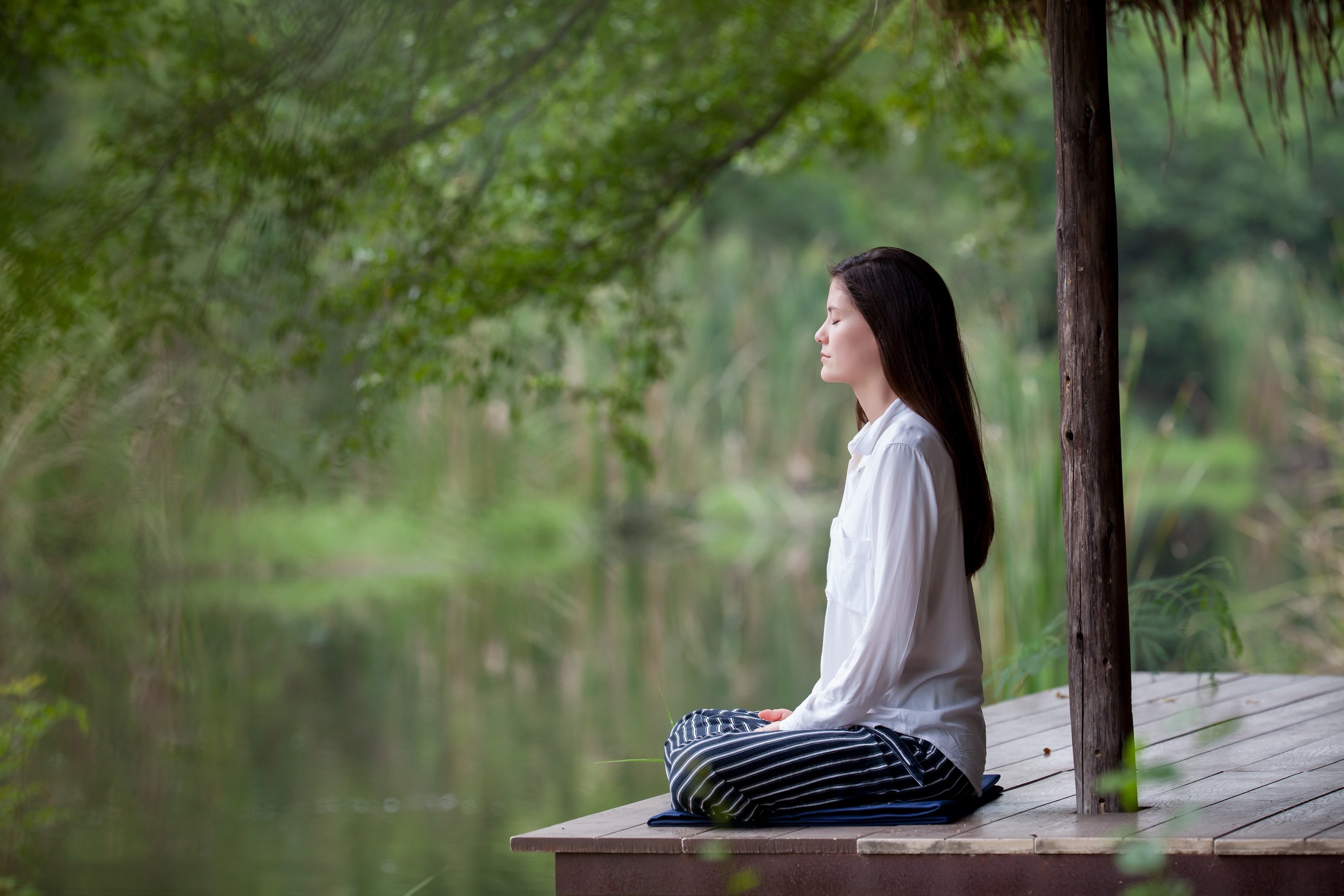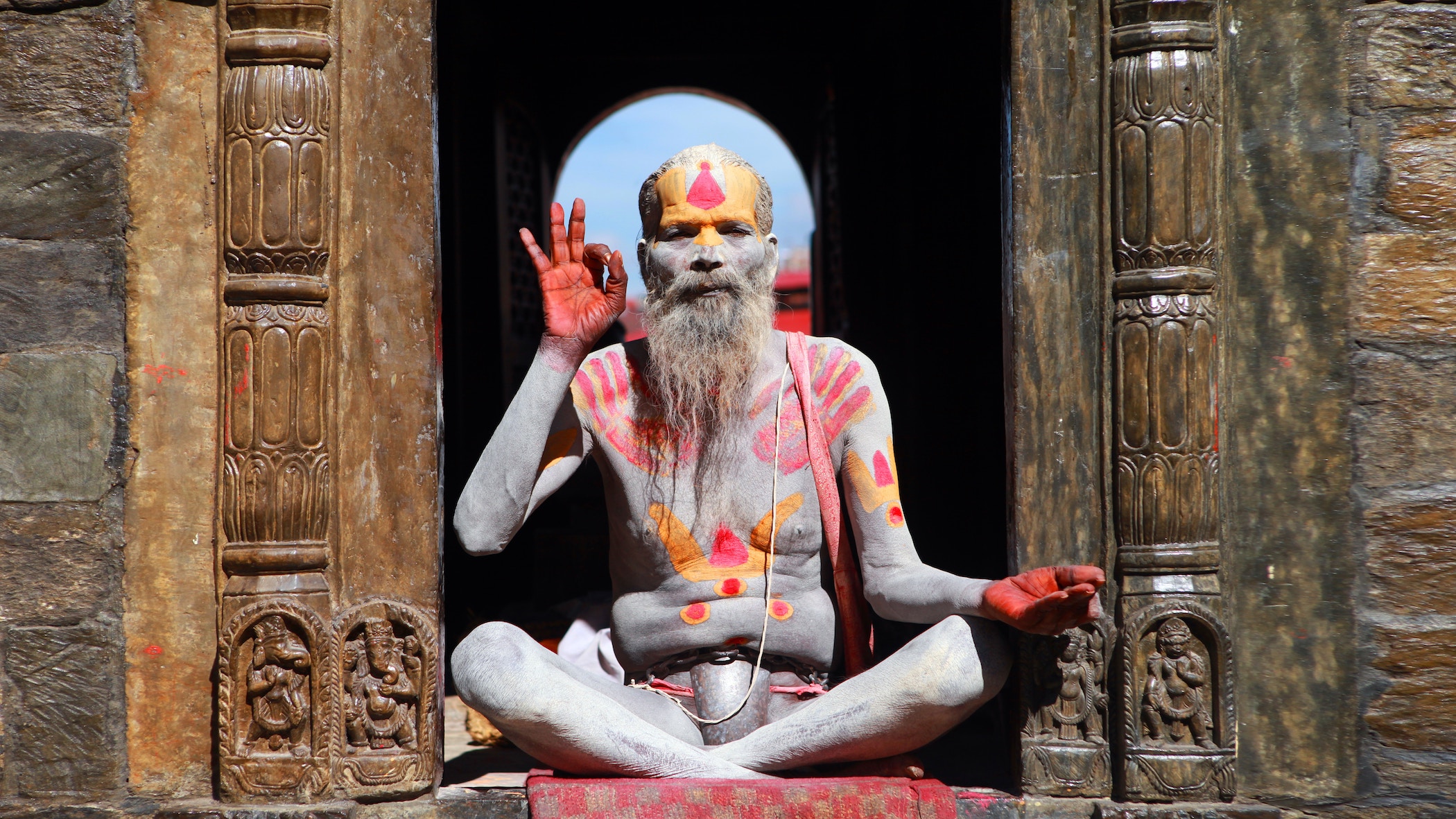Healing from Trauma
Healing from trauma begins with your own brain and, yes, we're all victims of some kind of trauma. Not everyone has severe PTSD and classic symptoms of trauma associated with fighting in a war. But, most of us have our share of traumatic life experiences -- experiences that disrupt our lives in subtle and not so subtle ways. Types of trauma include natural disaster, assault, war, bullying, illness, exposure to violence and so forth. Trauma, detected or undetected, can play havoc with our relationships, careers and inner lives. But, there is hope for trauma survivors, and I'll show you a set of simple, but powerful techniques you can use to overcome trauma and to heal from PTSD.
 If you panic or over-react to stress, you may be dealing with the symptoms of trauma.
If you panic or over-react to stress, you may be dealing with the symptoms of trauma.Healing From Trauma: Signs and Symptoms of Trauma
While an un-diagnosed head injury can wreck havoc with your brain, an unresolved trauma can hinder your happiness and success. Trauma exists along a continuum, and everyone falls on the continuum somewhere. A little girl who was bitten by a dog may fall somewhere in the middle, whereas a boy who has suffered severe bullying may fall near the extreme end. Or it could be the other way around. The girl may develop a generalized fear of dogs, or all animals, and may feel unsafe in open, unprotected public spaces. As a result of her traumatic dog bite, she may experience anxiety, grief and depression, plus sleep or anger problems. Long after the physical wounds have healed, she may continue to experience the emotional symptoms.
Children who have been parented poorly or dealt with harshly may have trauma, too. Poverty and discrimination may cause trauma, as well. In fact, some people, who are in very unfortunate circumstances may experience life as a series of setbacks and traumas. They may go through life waiting for the next tragedy to occur. Healing from trauma is an ability that is stored in our brain, and we only need to learn how to access it in order to make progress.
Yet, many people don't realize they have an innate capacity for healing, believing that they will always have to suffer. And they don't seek the help they need.
Trauma and Relationships
Always remember how trauma can adversely affect your relationships. It can exert a very real strain on even the best relationships, causing all sorts of problems. Communication can suffer, depression and anxiety can hogtie a relationship as dark clouds of pessimism discolor the victim's view of reality and spill over to the spouse.
Oftentimes, if one spouse is depressed, for example, the other spouse will end up depressed, too. A traumatized mate can be hard to live with, and the spouse may not know how to respond. Thus, a relationship can go sour quickly, and neither partner may know why or realize where the trouble is coming from, which is why it's critical to make a plan for healing from trauma -- and not to avoid it or let it snowball and worsen.
In a stressed relationship, the old problems may get worse and new symptoms develop, pushing the partners into crisis. The shock of it can be quite bewildering. Healing from trauma can be an important goal for anyone who wants to help himself or herself and their relationships.
Healing From Trauma: Create an Relaxing Environment in which Your Brain Can Heal Itself
The old approach to healing from trauma was to fix what's broken, but a powerful, new way of dealing with trauma is to create a healthy environment, in which the body and brain can heal, and tapping into your own innate healing powers. Of course, getting assessed by your doctor, and getting psychotherapy, if needed, is always a good idea. Good therapy provides a climate for self-expression and clearing the mind, and your therapist will target your symptoms for change.
And, spending time in a relaxing brain state is therapeutic. I'll say more about the value of deep relaxation later in this article.
The worst thing you can do is to ignore the problem, which probably won't get better on its own. Face it and get the help you need to start feeling better. Avoid leading a life characterized by chronic stress. Even staying busy all the time can exacerbate your issues. Thus, your brain will have a hard time healing itself, and your symptoms will have the perfect atmosphere in which to persist. Realize that burning the candle at both ends, as they say, could make your symptoms worse.
Always face your trauma and do something about it.
A better approach to Healing from Trauma
- Relaxation can help the brain to rest and reset itself and heal. That's why it's important to take time for regular relaxation, and to find ways to simplify and de-clutter your life.
- In addition, you'll want to get good quality sleep
- Consume a healthy diet, consisting of fresh, whole-foods,
- Get regular exercise, as approved by your doctor.
- In other words, you'll want to take excellent care of yourself or your traumatized person. Let's call it Elegant Self-care. Baby yourself a little. Stop to realize that you've been through a lot stress and you'll need time and tender loving care to recover.
- Remember to safeguard your relationship, too, or you may find the trauma seeping into marriage or other important relationships and throwing them into a toxic cesspool. Ask yourself how your trauma is impacting your partner and your relationships, and what can be done to neutralize the ill-effects. For help with relationship problems, look into my eBook, Relationship Gold, a resource that my therapy clients often rely upon during and after therapy. I wrote it to serve as a practical guide or a toolkit for protecting your relationships from harm, repairing broken relationships and fixing all kinds of relationship problems. I have crammed plenty of clinical tips and ideas from my nearly 40 years of experience as a relationship therapist into the book. Plus, you can use some of the techniques and suggestions to affair-proof your marriage and secure long-lasting happiness.
Any good short list of proven healing from trauma interventions will include deep relaxation, yoga and meditation. These methods put you in the proper brain state where your mind and body work together to enhance your natural healing powers. Don't worry. Even if you feel you cannot change the way your brain responds to events, or you cannot interrupt your traumatic impulses and patterns, there is hope!
The brain is capable of healing from trauma and making remarkable improvements, if given a chance. With your help, your brain is capable of forming new associations and finding powerful ways of improving its reaction to stress, regardless of the trying circumstances it may have encountered in the past.
In addition to the lifestyle changes mentioned above, it will be important to take time to get away and have a little fun. A well-timed holiday can be very good for the soul. Trauma survivors can be very hard on themselves, and fail to give themselves the support they need to recover. Healing from trauma takes a commitment, but is one of the most enjoyable and beneficial journeys one can make in life. it begins, perhaps, by accepting that you have a need and becoming aware of your innate ability to meet that need by giving your brain every chance to heal, grow and overcome.
 Relax Deeply to Overcome Trauma and Live life to the Fullest Again
Relax Deeply to Overcome Trauma and Live life to the Fullest AgainHealing from Trauma through Regular Relaxation
Your blueprint for healing from trauma, and building a positive, problem-solved future, lies within you. It is perfect in every way. Your job is to uncover and evoke it, or to nudge it into reality. Putting your desired future into practice may not be easy, but it's within your power. Just knowing it's there, residing within, is a comfort, and a good place to begin. Knowing you can lick your trauma, and its various symptoms, which have had their way with you, is liberating. It gives you hope, knowing that this too shall pass. Taking time to sit still and do nothing, or to relax deeply, is a powerful way to kick the natural healing process into high gear.
You see, there is a dimension of our being that is outside our noticeable lives, yet it has the distinct capacity to change everything for the good. We have to stop the world or get off the merry-go-round and go within to access its marvelous healing powers. Yes, everyone is traumatized, in some way, from merely living. It's part of being human. And accessing the calming waves of deep relaxation can help us to not only unwind, but to find a little quiet bliss and to heal from our traumatic experiences.
Many people I've worked with were re-traumatizing themselves every day before they came in for counseling and therapy. By thinking negative, self-limiting thoughts, and staying on the treadmill, which offers little hope for escape or improvement, they were actually making their trauma more bothersome.
I challenged the story they were telling themselves, that they were damaged and doomed, and there was no escape. I tried to offer new hope that their problems could be solved and their traumas resolved, or at least, improved. We're all whole inside, but we may not know it. Here's where mindfulness training can help . . . learning to see who we really are and what great things we're capable of doing.
Helping my clients to experience deep relaxation in my office helped them to become aware of new possibilities, and hastened their ability to overcome or manage their pain in exciting ways. Relaxation leaves you feeling rested, tranquil and at peace, and brings about a greater sense of happiness and personal freedom, as well. It's a powerful step toward healing from trauma.
Sitting in the silence and relaxing deeply for even a brief time can make a big difference in how you feel. It can be restorative and comforting, allowing you to escape worry and stress, and to immerse your brain in the soothing, restful energy of deep repose, where the brain produces more theta waves, which are associated with:
- Improved mental clarity
- greater creativity
- enhanced memory
- improved mood
- helping you to alleviate anxiety, depression and pessimistic thought patterns
Developing a regular relaxation or meditation habit can be one of the most potent steps you can take to unleash your mind and body's capacity for healing.
Healing From Trauma: How to Create A Good Relaxation Practice
First, start by setting aside 20 - 30 minutes a day for your relaxation practice. If you can do more, great. If not, do the best you can.
Then, learn a basic relaxation technique, if you don't know one.
Breathwork
I recommend breath work. It can transform our lives. Start by sitting in a quiet place, free from distraction, closing your eyes and focusing on the sound of your breath. The inhalations and exhalations. Like the sounds of the sea, the coming and going of your breath is the tide coming in and going out. By listening to and observing closely your natural breathing process, you will become relaxed and your mental state will shift in a delightful way.
Next, you can slow your breathing down a bit, by taking twice as long to breath in and out, and holding it for a couple of second between the inhalation and exhalation. That might mean a count of 2-3 seconds to inhale, and 2-3 seconds to hold it, and the same amount of time to exhale. Do this for a few minutes, then let your breath return to its natural state. Sit still, let go of your thoughts and worries and listen to the sound of your breathing.
You can do any number of breathing exercises, as you expand your breath practice. And you can learn many of these in a good yoga class.
Progressive Relaxation
Here the goal is to gradually relax your body until you feel quite relaxed from head to toe. You can close your eyes and imagine a white, fluffy could of relaxation enveloping your ankles and feet, then slowly expanding and rising to engulf your legs, mid-section, abdomen, chest and head and shoulders. As the cloud touches each new part of your body, that area becomes relaxed. You may feel heavy or light, or feel as though you're floating. There are many ways to enter the relaxed state. You'll learn what works for you through practice. Once you reach a relaxed state, you can stay there enjoying the peaceful feelings for as long as you like.
If you're just getting started on your relaxation program, I recommend that you check out my 30-minute Relaxation Program called, Journey to Relaxation. It will help you to attain a tranquil and peaceful state, without really trying. Just play the MP3 file, sit back, close your eyes and listen. The soothing images and suggestions, along with the relaxing music, will help you to dial in the inner bliss that so many of us have trouble finding.
As thoughts come to you, you can simply notice and discharge them, keeping a blank slate before you. Or, you can imagine taking a journey to a favorite place and doing something very enjoyable. And, if you fall asleep, as many beginners do, that will be okay, too.
Meditation
Want help healing from trauma? The ancient tradition of meditation truly holds amazing power to change your life. There are many traditions and philosophical approaches. The key is to just get started. Meditators are among the happiest, most relaxed individuals on the planet. And there are plenty of mental and emotional benefits, like a clearer and sharper mind, a longer fuse and a greater sense of well being. Meditation can relieve stress and increase the mind's potential for perception, awareness and processing efficiency. Meditation helps the heart, and can lower your blood pressure, as well.
A Simple Meditation Technique:
1. Sit or lie in a comfortable way, giving the back plenty of firm support.
2. Let your eyes close, as they feel like it. Feel how heavy your eyelids can be.
3. Breathe normally and listen closely to the sounds of your breathing. Do not hurry. Take your time.
4. Focus your attention on something beautiful and relaxing, like ocean waves or clouds moving through the sky. Let your mind visualize whatever beautiful images it comes up with on its own. Just be a passive observer. Let go of all tension in your body, and fully enjoy being in the meditation moment.
If you like, you can focus your mind upon the theme of universal love, the power of forgiveness or the joy of cooperation, and simply wait for insights to bubble up from your quiet state of consciousness. Enjoy, relax and refresh. In time, you'll do new things, deepening and expanding your practice.
Taking a meditation class at your local community club, library or yoga center can be a great way to increase your knowledge and practice of meditation. Many groups are offering classes or workshops on Mindfulness Meditation, a movement started by Jon Cabot Zinn, PhD, now that research has shown the many benefits of meditation. The ideas that serve as a foundation for meditation have been around for centuries, and have been a great benefit to people for a very long time. Mindfulness is about paying attention to the moment in a way that can help you to understand your life with great clarity and to facilitate healing from trauma and adversity.
Meditating is not the same as sleeping, or waking, and involves a different brain state. Once you know how to sit in the silence and to get into -- and remain for a time -- in that special state, wonderful things can happen. Meditation offers us a way to awaken to our inner potential and to grasp the ultimate actuality or the true nature of life.
Need More Help?
Interested in getting a little more help in healing from trauma? Stuck and don't know where to turn? Or would you like to make progress fast? Contact me with your question or need and I will do my very best to respond within 48 hours. Curious about email consulting or personal coaching? Just let me know. You can make faster progress and get quicker results if you work with an expert, an experienced teacher or helper. And it can be so much fun, and so very rewarding.
Healing from Trauma: Summary
You can help yourself to recover from the everyday trauma of living, and to overcome PTSD, by learning to relax and let go of stress. If you make time in your schedule for daily relaxation, even if only for a few minutes a day, you'll start feeling better soon. Deep relaxation is very therapeutic and restorative, helping your brain and body to recover from the distress of trauma, and helping you to attain new potential for living a full, happy life . . . and for functioning at a very high level. Healing from trauma is easier than you may think. And nothing could be more enjoyable or helpful in so many ways.




